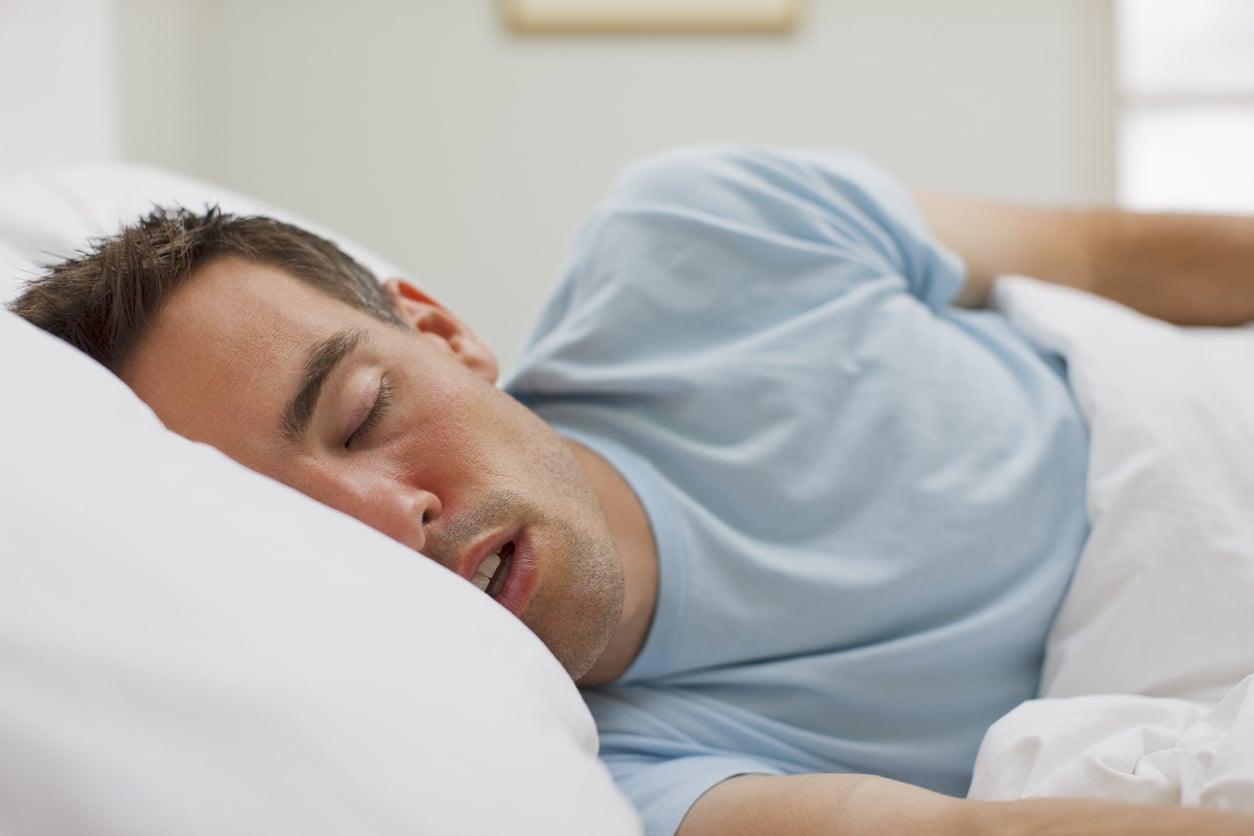There are two types of breathing: through your mouth and through your nose. You’ve probably heard people talk about mouth breathing before, often implying something is wrong with the person doing it. But that isn’t true at all! Mouth breathing could result from septum problems preventing you from breathing through your nose, or it could be just a habit that you don’t even notice you’re doing.
A common time for people to mouth breathe is while sleeping.
How Do I Know if I’m Breathing Through My Mouth While Sleeping?

Common signs of mouth breathing while sleeping include drool on your pillow, dry mouth or bad breath in the morning. Consistent mouth breathing in children can affect the shape of their face.
Is Mouth Breathing Always Bad?
Occasional mouth breathing isn’t bad. You might notice it while going for a run around Fossil Creek Park or having a long conversation with a friend. However, sleeping with your mouth open nightly can negatively affect your throat health.
How Can I Stop Mouth Breathing?
Your ENT specialist will identify and treat the underlying cause of your mouth breathing. A few common causes and their treatments include:
- Allergies. Medications like antihistamines, decongestants and nasal sprays can ease allergy congestion.
- Sinus infections. Inflammation of the sinuses can block nasal breathing. A Balloon Sinuplasty is a great option to prevent recurring infections.
- Deviated septum. A deviation in your septum can obstruct nasal breathing. A septoplasty fixes the deviated septum to restore normal breathing.
- Enlarged turbinates. Turbinates are narrow bones that protrude into the nasal cavity. When they’re enlarged, turbinates can obstruct normal breathing. We use a procedure called a turbinate reduction to reduce the size of the bones and improve breathing.
- Obstructive sleep apnea (OSA). OSA causes your airway to collapse while sleeping, causing you to snore and mouth breathe. Treating it with a CPAP machine or implant can potentially minimize mouth breathing.
If there isn’t an underlying cause for your mouth breathing, it’s likely just a habit. In that case, concentrate on closing your mouth while you aren’t eating, talking or exercising. While you may not be able to stop mouth breathing entirely, breaking the habit a little at a time may lead to better sleep and less dry mouth.
Will Mouth Tape Stop Mouth Breathing?
Mouth tape is a hot topic on social media. Many people report that it stops their mouth breathing, improves morning breath and leads to better rest. However, it’s essential to talk to your ENT specialist before taping your mouth shut at night. Not only can mouth tape be ineffective, but it could be potentially dangerous if an underlying condition stops you from breathing through your sinuses.
For more information on managing your sinus and throat health, contact Alpine Ear Nose & Throat PC today.